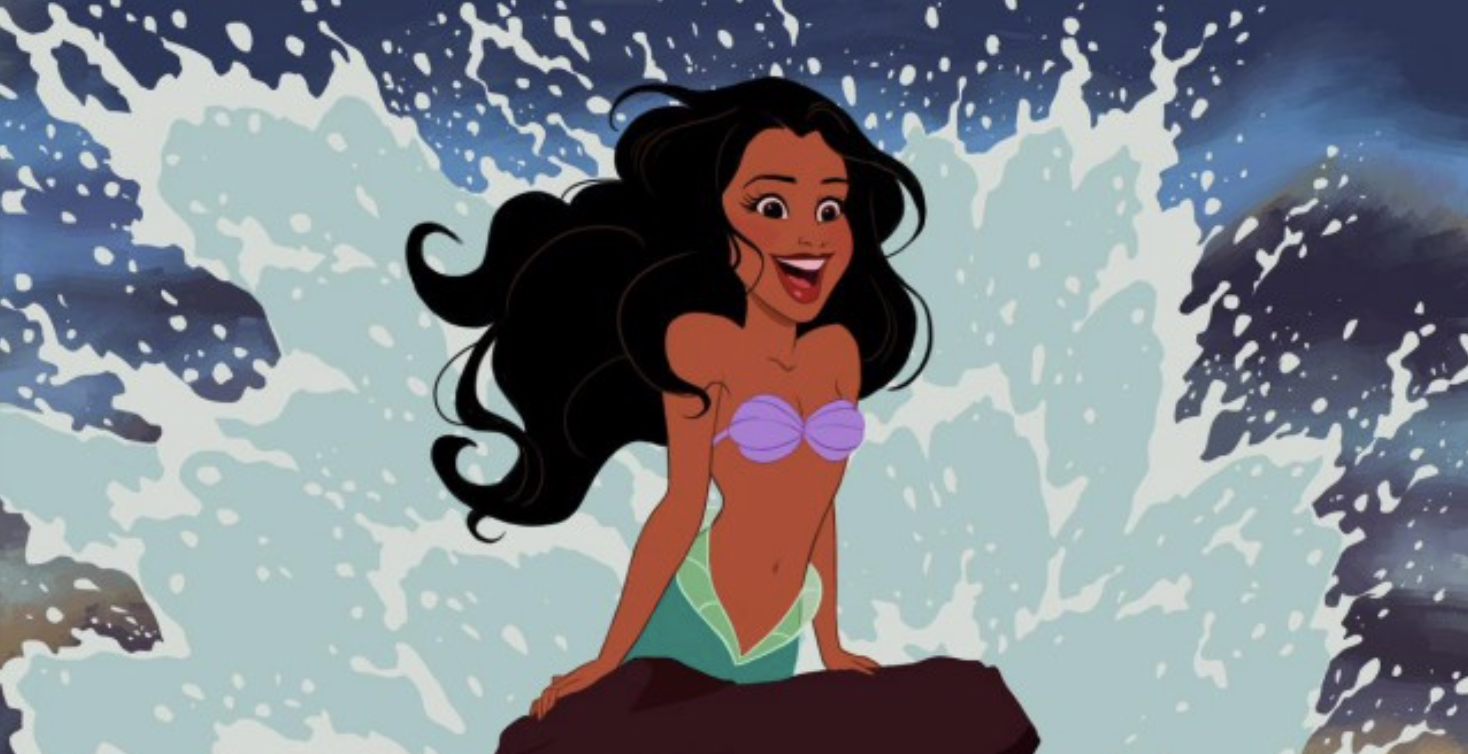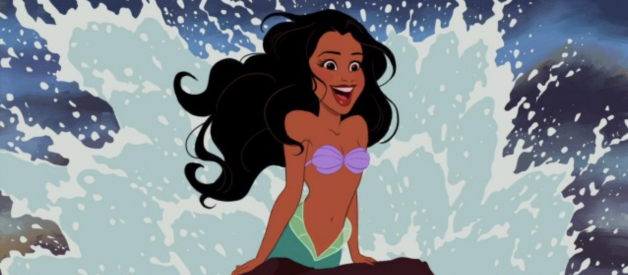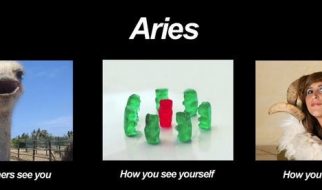They understand representation matters for everyone
 The Little Mermaid by Dylan Bonner
The Little Mermaid by Dylan Bonner
Growing up in the ?70s, I saw no princesses who looked like me. The Cosby Show didn?t exist, and there were few movies showing the experiences of modern-day black people. Of course when you?re a child, you don?t consciously think about the absence of people in the public realm who look like you. You simply don?t see yourself in positions and experiences you regularly see white faces occupy, so you can?t imagine yourself alongside them.
As a child, I didn?t dream of being a Disney princess, mermaid, or any other beautiful creature studios dream up for little girls. I just saw their beauty and knew it couldn?t be me. When I was old enough to really see the absence of faces similar to mine, I second-guessed whether I belonged in the spaces they occupied. This affected my life and career choices. It?s why representation at a young age matters so much.
It?s not like we black girls don?t dress up as Disney princesses. As a child, I was Cinderella for two straight Halloweens because I loved her so much. I was also aware that, when I put on my Cinderella mask, her alabaster skin didn?t match my own deep brown skin. I wore the costume, but I still missed the connection. I didn?t feel like her because I knew I didn?t look like her.
Recently, Disney cast the beautiful and talented Halle Bailey as the new Ariel for the live-action version of The Little Mermaid. I remember seeing the animated movie of The Little Mermaid as an adult, and it is lovely. However, like most Disney characters, Ariel has pale white skin and European features. She doesn?t look anything like me. So I applaud Disney for choosing to cast a black girl in the role of Ariel. There are so few black faces for little girls to look up to, that the ones they do have in no way embrace the diversity and cultural background of our vast experiences.
The uproar from white people doesn?t surprise me. White people are terrible at change. They are terrible at looking outside their own needs and thinking about the needs of anyone unlike themselves. We can explain to white people that representation is important for our little girls, too ? they must see people who look like them so they know they?re only limited by their imaginations ? but that message goes largely unheard. White people are too busy protesting Disney?s choice. To them this fictional creature ? a mermaid ? is white and should remain white.
Never mind that they?re the first ones to dress their children as Moana and defend that choice. Although Moana is a fictional character, she is of Polynesian descent, which is a very real ethnicity and culture. Yet white people don?t see the irony. They will argue that a fictional character?s ethnicity remain white, but a character representing a real ethnicity can change to white if they see fit.
Never mind the fact that Ariel is a fictional creature from a dark Hans Christian Andersen tale. In his version, Ariel is a creature who has no soul. There is no love story in the original tale. What she pursues is not just a soul, but an immortal one. The prince is merely a means to an end. Once the prince marries another, in order for her to live, Ariel must kill him. She refuses and ends up in purgatory for her decision.
Of course, the Disney version has a very different ending. Ariel gets her prince, and they live happier ever after. Why should any little girl be deprived of this? Why shouldn?t we be Cinderella? Snow White? Or Sleeping Beauty?
I?m sure everyone has heard of the musical Hamilton. Lyn-Manuel Miranda purposely cast the founding fathers as people of color to show the diversity of this nation. No, it is not historically accurate. But culturally it?s on point. The United States has never been a white country. Native Americans were the original occupants here. Columbus didn?t discover this country. He conquered it and slaughtered its inhabitants. Fast forward to now. We are a society of multiple ethnicities, cultures, races, and backgrounds. Why should we not show that on television, on stages, in boardrooms?
Black girls go through most of their lives seeing very few public figures who look like them. When you don?t see people similar to you, you stop believing you can accomplish anything outside of what you can immediately see because there is no one to emulate. So outside of a Disney character, we have to do better at portraying nonwhite people as brilliant and creative . . . as special, unique and highly valued.
White people don?t think about the dearth of nonwhite people on television and in film because they see themselves everywhere. They are the normative culture. We are not. They are everywhere, and we are scarcely anywhere.
It?s shameful when white people protest Ariel, but have nothing to say about the racism black people face every day. They may not like it, but times are changing, and we deserve to be represented in every fairy tale. We deserve to see ourselves in every space and in every experience. This country has always been diverse. It is who we are, and it is who we will always be.
Black people have lent our culture to making this country what it is. We have earned our place in this society, and we have earned the right to see ourselves everywhere we look. We?re not going back. We?re only looking forward.
Ariel is just the beginning.


